9 Surprising Reasons You're Bloated, Experts Say
It's time to get to the bottom of your discomfort.
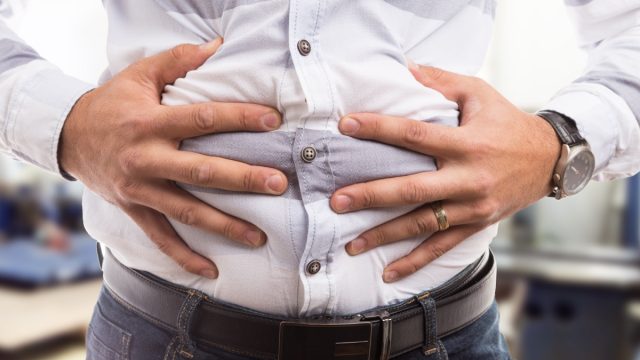
"Why am I bloated?" If this is a question you often ask yourself when your belly feels uncomfortably full or tight, you're certainly not alone. Though some people experience the symptom regularly or intermittently, including 90 percent of people who have been diagnosed with irritable bowel syndrome (IBS) and 75 percent of menstruating women, up to a quarter of adults say they experience abdominal bloating from time to time, despite being otherwise healthy, the Cleveland Clinic reports.
All too often in this scenario, it can be hard to pinpoint the exact cause of your discomfort. However, dietitians and nutrition experts say that among their clients who experience occasional and confounding cases of bloating, certain themes tend to emerge. Wondering which surprising triggers could be behind the symptom? These are nine common but under-discussed reasons you could be bloated, experts say.
RELATED: 4 Best Fruits to Erase Bloating, Science Shows.
Why Am I So Bloated?
1. You eat too quickly.

If you frequently experience bloating, your diet might be the first place you look to root out a cause. However, it's not just what you eat that matters, but also how fast you eat.
"Eating meals quickly can result in swallowing excess air, which accumulates in the digestive tract and contributes to bloating," says Catherine Gervacio, RDN, a registered dietitian working with E-Health Project. "It is best to eat at a slower eating pace to minimize air intake during meals. Chew your foods slowly, and take time to appreciate the taste and texture of food."
2. You eat too many artificial sweeteners.
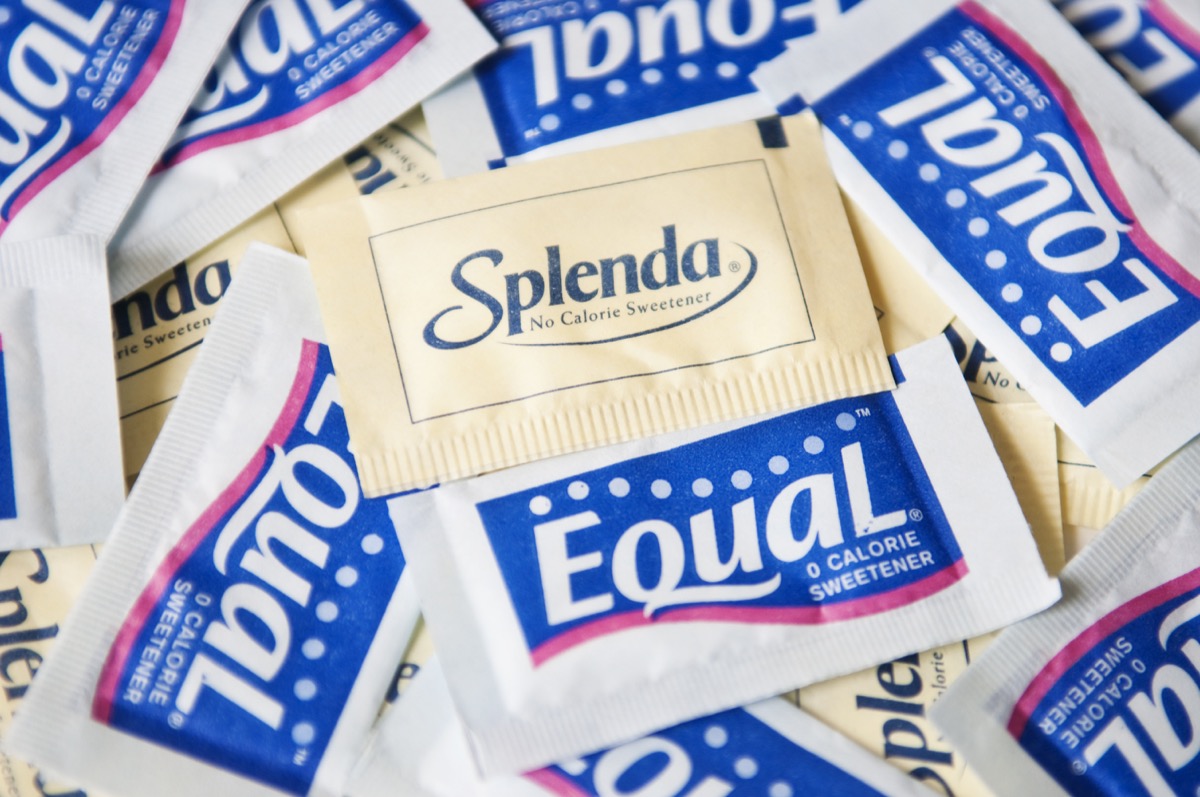
Artificial sweeteners can also contribute to your abdominal discomfort. "There are some sugar substitutes, such as sorbitol and mannitol, that can ferment in the gut, leading to the production of gas and causing bloating. This is especially true in individuals sensitive to these additives," says Gervacio.
The Mayo Clinic adds that "sugar alcohols, stevia and luo han guo can cause bloating, gas and diarrhea. The amount of sugar alcohol that causes these symptoms varies from person to person. In general, it is safest to take in small amounts of sugar substitutes."
They recommend using sugar substitutes in moderation and ideally only for a short time while you transition to cutting back on your total sugar intake.
RELATED: 10 Safe and Easy Ways to Poop Instantly.
3. You're dehydrated.

If you notice that you're often bloated and dehydrated, it may not be a coincidence.
"Inadequate water intake can slow down digestion, resulting in constipation and bloating," Gervacio explains, emphasizing that staying adequately hydrated can support proper digestive function.
"Drink water regularly throughout the day, reaching for at least eight glasses or around two liters," she advises.
4. You have low stomach acid.
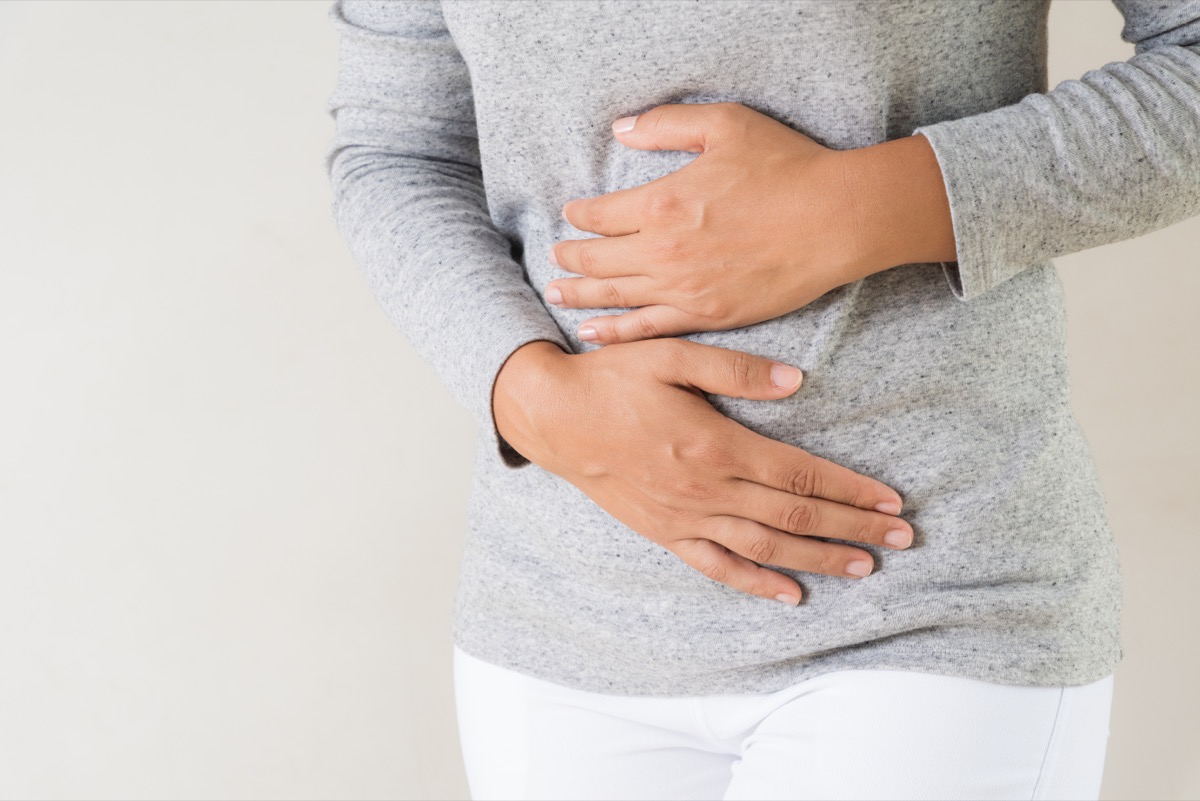
Typically, people associate high levels of stomach acid with gastrointestinal distress, says Chloë Ward, a functional diagnostic nutrition practitioner, certified nutrition health coach, and the founder of One Healthy Meal At A Time. However, she notes that "contrary to popular belief, low stomach acid can contribute to bloating."
"Inadequate stomach acid impairs the breakdown of food, leading to incomplete digestion and fermentation in the gut, which can cause gas and bloating," she explains.
Before attempting to correct low stomach acid through lifestyle interventions, it's important to discuss your concerns with your doctor. "Symptoms of low stomach acid, such as bloating, fullness and nausea, overlap with many other conditions, such as functional dyspepsia, gastroparesis, and irritable bowel syndrome (IBS). Therefore, symptoms alone cannot diagnose low stomach acid," notes The Functional Gut Clinic.
RELATED: 3 Signs You Have Clear and Healthy Bowels, Nutritionist Says.
5. You have a mineral deficiency.
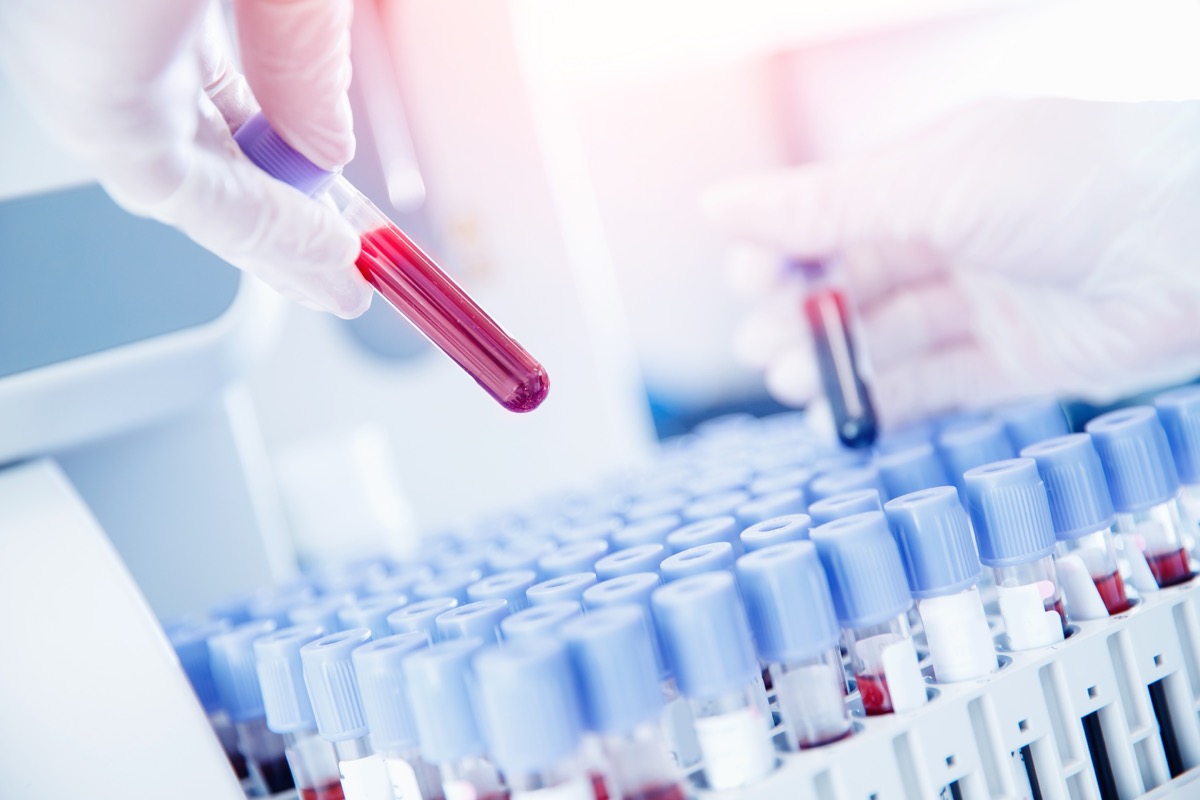
Most people are aware that having too much sodium can cause you to retain water. However, fewer people realize that having a sodium deficiency can have similar symptoms, including bloating and swelling.
"Low levels of certain minerals, such as sodium, can disrupt the balance of electrolytes in the body, affecting fluid retention and leading to bloating," explains Ward. "Sodium is essential for maintaining proper fluid balance."
6. You have a bacterial infection in the gut.
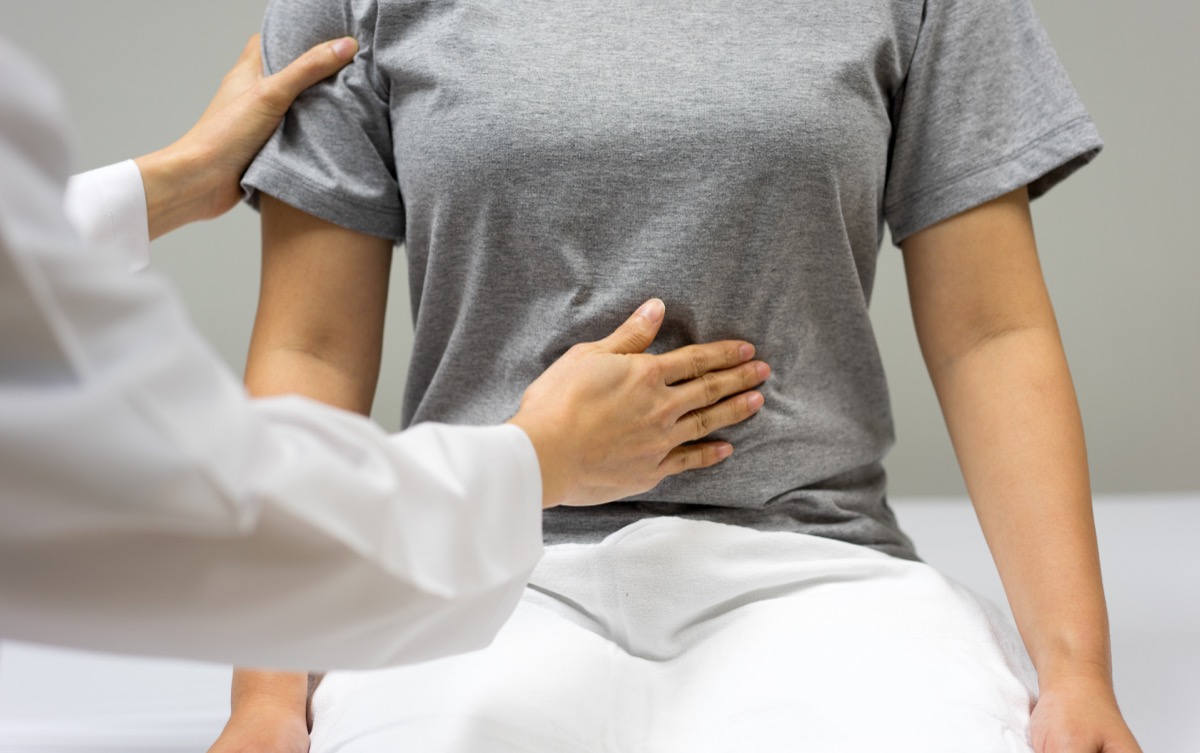
Your gut bacteria can also cause bloating and gassiness, especially if you have certain types of infection. For instance, Helicobacter pylori (H. pylori) is a bacterium that can infect the stomach lining and lead to various digestive issues, Ward says. H. pylori infection can disrupt the normal functioning of the stomach, impairing digestion and causing bloating, abdominal discomfort, and other symptoms.
If your doctor has ruled out other reasons for your bloating, they may wish to test for H. pylori using a stool test, breath test, or scope test. If an infection is found, it can most often be treated with a combination of antibiotics, the Mayo Clinic says.
RELATED: What Really Happens to Your Body If You Don't Go to the Bathroom Every Day.
7. You have malabsorption issues.

Sometimes bloating might suggest one of several malabsorption conditions. For instance, "Celiac Disease, Crohn's disease, and pancreatic insufficiency can impair the body's ability to absorb and digest nutrients properly," says Ward.
"When nutrients aren't absorbed effectively, undigested food particles can ferment in the gut, leading to bloating and other digestive symptoms," she explains.
If you suspect Celiac disease or another intolerance or sensitivity to be the cause, ask your doctor about trying an elimination diet to help safely pinpoint the culprit.
8. You have SIBO.
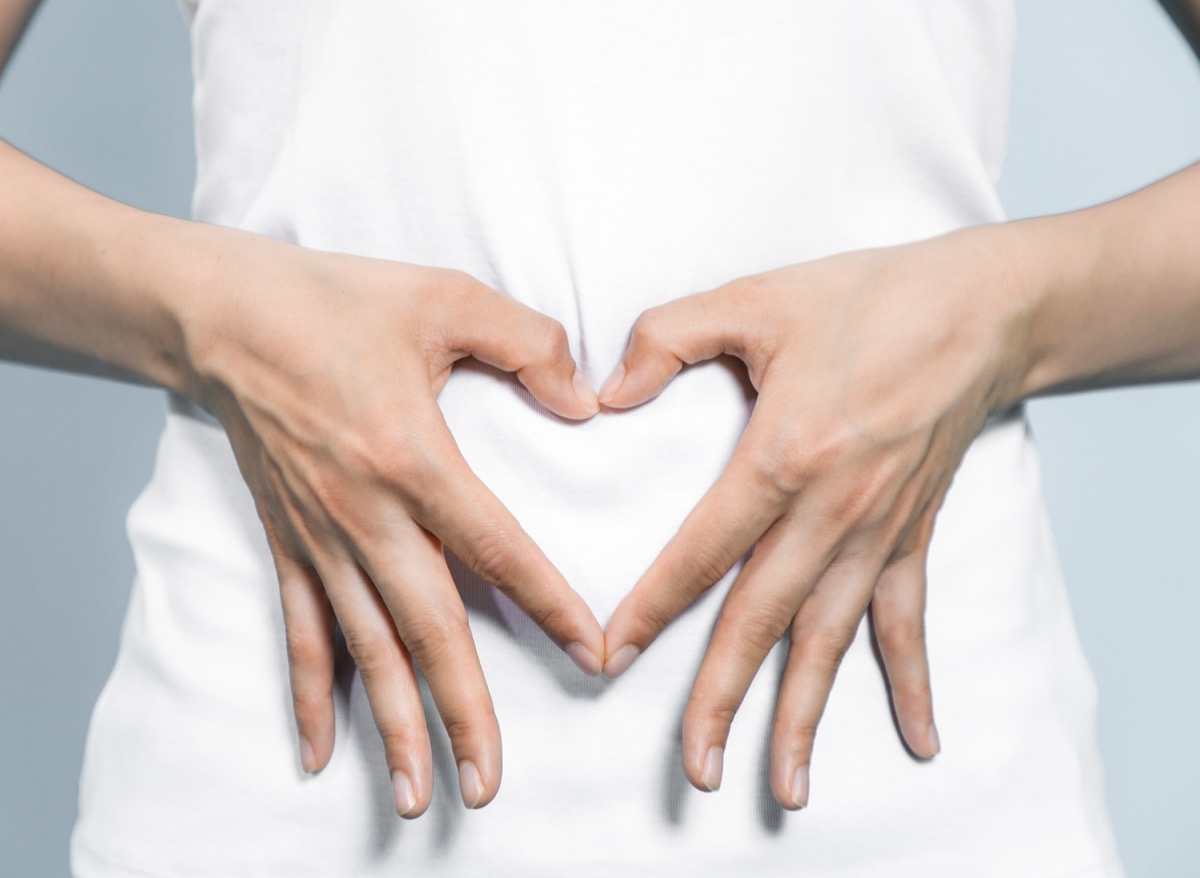
Emily Spurlock, RD, a registered dietitian with the Institute for Digestive Wellbeing, says that the number one cause of bloating she sees is a condition called Small Intestinal Bacterial Overgrowth, also known as SIBO.
She explains that in a healthy digestive system, the small intestines should not have a large number of bacteria (unlike the large intestines, which do). Having an overgrowth of bacteria in the small intestine can lead to diarrhea, weakness, fatigue, abdominal pain, and bloating.
"When a person has SIBO, the bacteria break down our food, fermenting it and producing gas. The gas gets trapped in the small intestine because it's not meant to handle gas," Spurlock says. "The walls of the small intestine don't expand the same way the walls of the colon do, so the bloating can be very painful. The small intestine is also about 22 feet long, so that's a long way for gas to travel."
RELATED: The Only Foods You Should Be Eating at Night, Doctor Says.
9. You eat too much fiber.
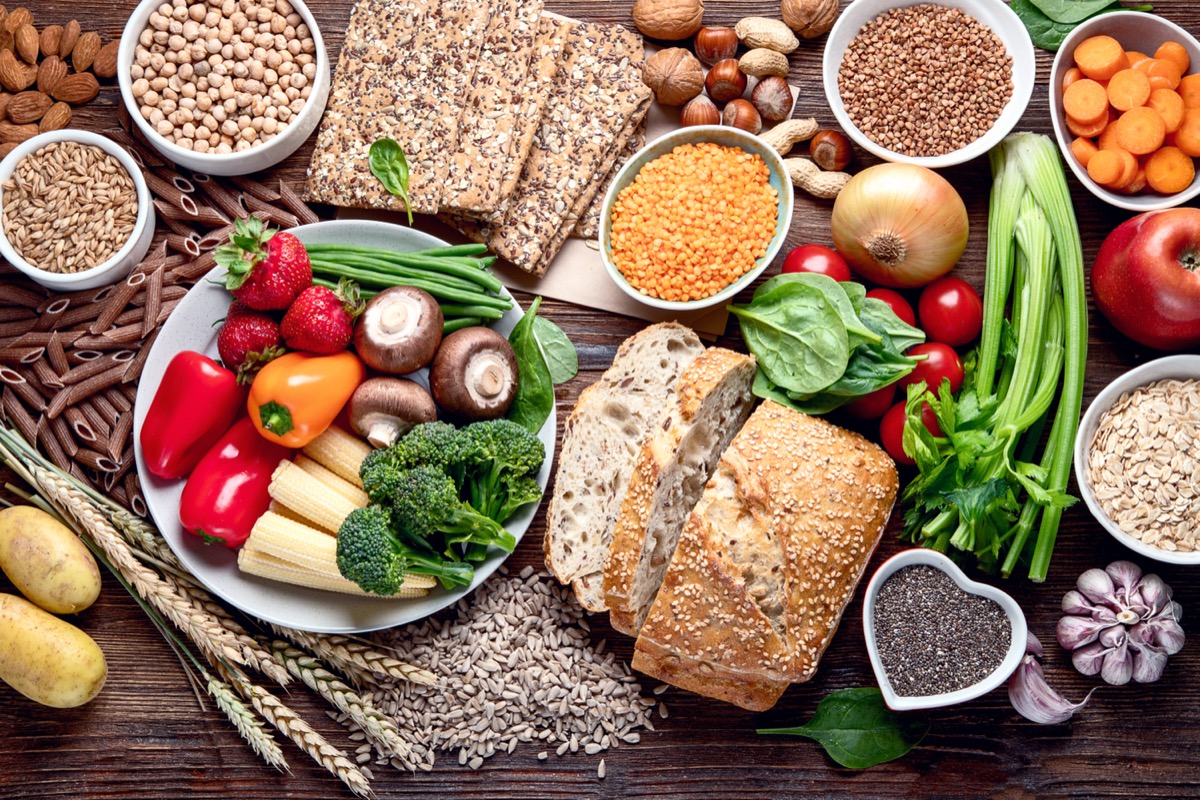
Spurlock adds that your diet can cause bloating, even without a specific intolerance. You're likely already aware that foods like beans, lentils, cheese, alcohol, soda, and processed foods high in saturated fat can cause a problem. However, fewer people realize that whole grains and raw fruits and vegetables can also trigger bloating.
"If a person has digestive issues and is prone to bloating, fiber often makes things worse," she explains. That's because when you eat a high-fiber diet, your body responds by increasing populations of certain fiber-digesting gut bacteria, note experts from Johns Hopkins Medicine.
"Reducing fiber can sometimes be the key to stopping bloating," Spurlock adds.
Best Life offers the most up-to-date information from top experts, new research, and health agencies, but our content is not meant to be a substitute for professional guidance. When it comes to the medication you're taking or any other health questions you have, always consult your healthcare provider directly.





















